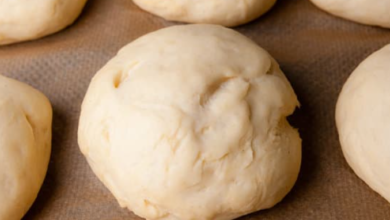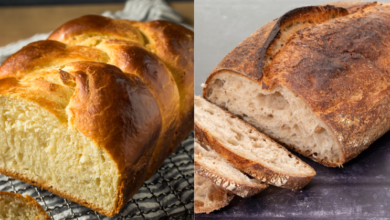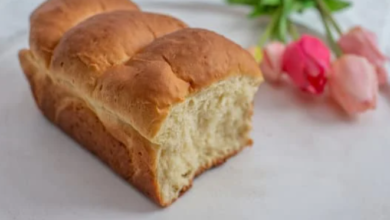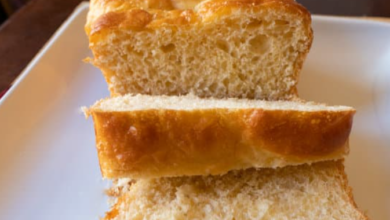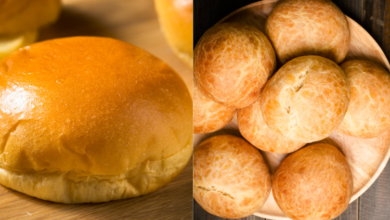What’s Causing Your Brioche Dough to Be So Sticky?
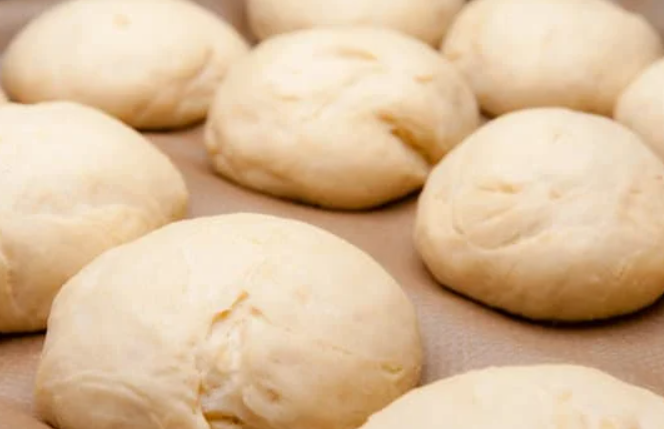
What To Know
- If the dough remains sticky after following the above steps, try adding a small amount of flour at a time until the desired consistency is achieved.
- By addressing the causes of sticky brioche dough and implementing the solutions provided, you can create a smooth, elastic, and non-sticky dough that will transform into a golden, fluffy, and irresistible brioche.
- Reduce the amount of liquid gradually or let the dough rest for a short period to allow the gluten to develop.
Brioche dough, known for its rich, buttery texture, can sometimes become frustratingly sticky, hindering the baking process. Understanding the reasons behind this stickiness is crucial to achieving perfectly soft and golden brioche. In this guide, we delve into the potential causes and provide solutions to combat this issue.
Causes of Sticky Brioche Dough
1. Excessive Moisture: Brioche dough contains a high proportion of butter and eggs, which contribute to its moisture. Adding too much liquid during the mixing process can lead to an overly wet dough that becomes sticky.
2. Insufficient Kneading: Proper kneading develops the gluten in the dough, creating a strong network that traps the gases released during fermentation. Inadequate kneading results in a weak dough structure, making it prone to stickiness.
3. High Yeast Activity: Yeast plays a vital role in the fermentation process of brioche dough. However, excessive yeast activity can produce too much gas, causing the dough to expand and become sticky.
4. Warm Kitchen Temperature: Warm temperatures accelerate yeast activity, potentially leading to over-fermentation and sticky dough.
5. Incorrect Ingredient Ratios: The balance of ingredients in brioche dough is crucial. Too much butter or eggs can make the dough greasy and sticky.
6. Overmixing: Overmixing the dough can break down the gluten network, weakening the dough’s structure and resulting in stickiness.
7. Stale Ingredients: Using old or stale ingredients, particularly flour, can affect the dough’s texture and make it sticky.
Solutions to Sticky Brioche Dough
1. Adjust Liquid Gradually: Add liquid to the dough slowly and gradually, mixing until it just comes together. Avoid adding too much liquid all at once.
2. Knead Thoroughly: Knead the dough for a sufficient amount of time to develop the gluten. Aim for at least 10-15 minutes of hand kneading or 5-7 minutes using a stand mixer.
3. Control Yeast Activity: Use the recommended amount of yeast and proof it in lukewarm water (110-115°F) for 5-10 minutes before adding it to the dough. Avoid using overly warm water.
4. Maintain a Cool Kitchen Temperature: If possible, work in a cool kitchen or refrigerate the dough for short periods to slow down yeast activity.
5. Balance Ingredients: Follow the recipe precisely and adjust the amount of butter or eggs only if necessary.
6. Avoid Overmixing: Mix the dough until it is just combined and elastic. Overmixing can weaken the gluten network.
7. Use Fresh Ingredients: Ensure that the flour and other ingredients are fresh and not expired.
Additional Tips
- If the dough remains sticky after following the above steps, try adding a small amount of flour at a time until the desired consistency is achieved.
- Use a lightly floured work surface and utensils to prevent the dough from sticking.
- Let the dough rest for 10-15 minutes before shaping to relax the gluten and make it easier to handle.
- Bake the brioche at the correct temperature and for the recommended time to prevent underbaking or overbaking, which can affect the texture.
Baking a Perfect Brioche
By addressing the causes of sticky brioche dough and implementing the solutions provided, you can create a smooth, elastic, and non-sticky dough that will transform into a golden, fluffy, and irresistible brioche.
The End: Troubleshooting Your Brioche Dough
Basics You Wanted To Know
Q1: Why is my brioche dough so wet and sticky?
A: Excessive moisture from adding too much liquid or using old flour can cause a wet and sticky dough.
Q2: How can I fix sticky brioche dough without adding flour?
A: Reduce the amount of liquid gradually or let the dough rest for a short period to allow the gluten to develop.
Q3: Can I knead brioche dough too much?
A: Overkneading can weaken the gluten network, making the dough sticky. Aim for 10-15 minutes of hand kneading or 5-7 minutes using a stand mixer.
Q4: How do I prevent brioche dough from sticking to my hands?
A: Lightly flour your hands and work surface to prevent sticking. You can also use a dough scraper to handle the dough.
Q5: Why is my brioche dough so sticky after rising?
A: Over-fermentation due to excessive yeast activity or warm temperatures can make the dough sticky. Control yeast activity and maintain a cool kitchen environment.
